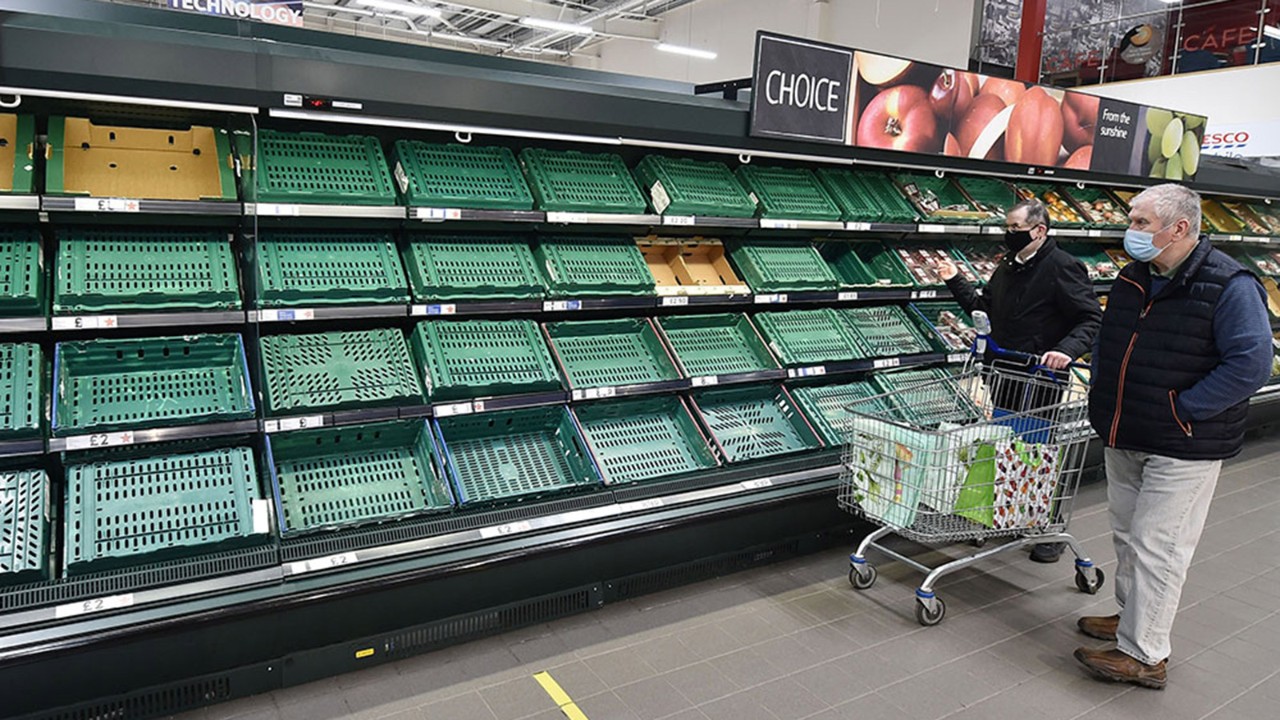
The Northern Ireland protocol of the EU withdrawal agreement is intended to prevent a hard border in Ireland and maintain ‘unfettered access’ for the movement of goods between the Great Britain and Northern Ireland markets.
For the sale of goods and services, broadly speaking nothing has changed. Northern Ireland remains part of the UK VAT territory and UK VAT continues to be chargeable.
An exception is the movement of a business’s own goods from Great Britain to Northern Ireland, which requires output tax to be accounted for on the UK VAT return. An equivalent amount is recoverable on the same UK VAT return as input tax, subject to partial exemption restrictions.
Where a partial exemption restriction is required by a business moving its own goods to Northern Ireland, an adjustment to recover previously restricted input tax on the goods can be made if their purchase was previously subject to a partial exemption input tax restriction in Great Britain.
No change
Goods bought or sold domestically within Northern Ireland or between Northern Ireland and the EU remain subject to EU VAT legislation, and the VAT accounting for the supply or movement of goods is the same as it was before Brexit. This includes zero-rated dispatches to a VAT-registered customer in an EU member state and acquisition tax accounting in Northern Ireland on acquisitions from EU suppliers.
The VAT rules for services, including the application of the reverse charge, have not changed for businesses in Northern Ireland, and any changes as a result of Brexit are the same for businesses in both Northern Ireland and the rest of the UK.
XI prefix
Businesses trading goods which are subject to the Northern Ireland protocol are required to notify HMRC.
This is not a separate VAT registration. The notification activates an XI prefix to the business’s existing GB-prefixed VAT registration number, which is then included as a valid EU VAT registration number in the EU’s VAT systems, such as the VAT information exchange system (VIES).
Businesses must use their XI prefix VAT number for the supply and purchase of goods between Northern Ireland and EU member states.
VAT reporting
Intra-EU reporting, such as EC sales lists and potentially Intrastat reports, continues to be required.
There will not be a separate Northern Ireland VAT return. The UK VAT return will continue to include the boxes required for intra-EU VAT accounting (boxes 2, 8 and 9) for UK VAT-registered businesses which need to report supplies under the Northern Ireland protocol.
Customs requirements
The Northern Ireland protocol requires steps to be taken to prevent goods entering the EU from Great Britain via Northern Ireland without paying EU customs duty.
This means that there is a requirement for customs procedures in Northern Ireland. In practice, Northern Ireland continues to operate as though it is part of the EU customs union.
Any business needing to make a customs declaration in Northern Ireland, such as when it receives goods in Northern Ireland from Great Britain, must have an economic operator’s registration and identification (EORI) number beginning with XI. The XI EORI number is for customs purposes. It is separate and distinct from the XI-prefixed VAT registration number.
EU member state tax authorities have expressed contradictory views about whether an XI EORI number is an EU EORI number, which can or must also be used by a business in other EU member states. This has created challenges for businesses as they can hold only a single EU EORI number.
Trader support service
The trader support service (TSS) is a free service from the UK government to provide guidance and support on the Brexit-related changes to the process for businesses bringing goods into Northern Ireland.
The TSS can also complete import declarations (supplementary declarations) on behalf of a business moving goods into Northern Ireland from Great Britain or outside the EU.
Some businesses have had difficulty using the TSS and applying the guidance within it for the preparation and submission of the supplementary declarations to HMRC.
‘At risk’ goods
To prevent tariff-free importation of goods into the EU from Great Britain via Northern Ireland, a business bringing goods into Northern Ireland must apply a series of tests to establish that the goods are not at risk of subsequent movement to the EU.
Goods are, by default, not at risk if the applicable EU tariff is zero, such as when they meet UK rules of origin requirements under the EU/UK trade and cooperation agreement.
Otherwise, the business must apply a complex set of tests looking at processing and final use in Northern Ireland. When these tests are met, and a further authorisation for the UK trader scheme (UKTS) is obtained from HMRC, the goods can be declared not at risk of entering the EU.
This has been one of the biggest challenges encountered by businesses moving goods into Northern Ireland so far, partly as it had been expected that the TSS would make the ‘at risk’ analysis based on data input by the business, rather than leaving businesses to make the supplementary declaration.
There is a similar ‘not at risk’ test for goods imported into Northern Ireland from outside the EU and Great Britain, to establish whether the EU tariff rather than the UK tariff should be applied to the goods.
Duty waiver and repay
Businesses may be able to claim a waiver for customs duty on goods brought into Northern Ireland from Great Britain which might otherwise incur EU tariffs because they are deemed to be at risk of entering the EU. Waivers are provided in the form of de minimis aid; they must be claimed on the import declaration and monitored to ensure that the waiver, and any other state aid claimed, is within the de minimis amount allowed for the business.
A further customs duty waiver form must be completed by businesses bringing goods into Northern Ireland and posted to HMRC. Guidance on claiming such waivers can be found on the TSS website and from HMRC here.
The UK government has publicly stated in its Northern Ireland protocol command paper that it will separately establish a reimbursement scheme for goods that attract an EU tariff (the at-risk goods) but which can subsequently be shown to have remained in Northern Ireland.
However, details have yet to be announced, and it is not yet known whether EU tariffs due on at-risk goods will have to be paid by businesses in the meantime.
We expect that any reimbursement scheme will also extend to goods imported into Northern Ireland from outside the EU and Great Britain that were deemed at risk and subject to a higher EU tariff at the point of import.
Next steps
Other parts of the Northern Ireland protocol still need to be fully implemented, such as when goods in Northern Ireland being shipped to Great Britain will be required to have a UK import declaration completed in Great Britain and, potentially, a UK tariff applied.
Currently any goods in free circulation in Northern Ireland can be supplied free of duty and customs compliance procedures from Northern Ireland to Great Britain, but a stricter definition of qualifying goods is due to be determined and implemented later in 2021.
The TSS is intended to be available to businesses only for a period of two years. Businesses are expected to require customs agents to assist with their import declarations, in the same way as for imports into Great Britain, from 2023.
Finally, the Northern Ireland Assembly will periodically vote on whether to remain inside the arrangements outlined in the Northern Ireland protocol, with the first such vote due to take place in December 2024. There remains a possibility that the UK and EU could have to find a new solution for VAT and customs in Northern Ireland after this date.



